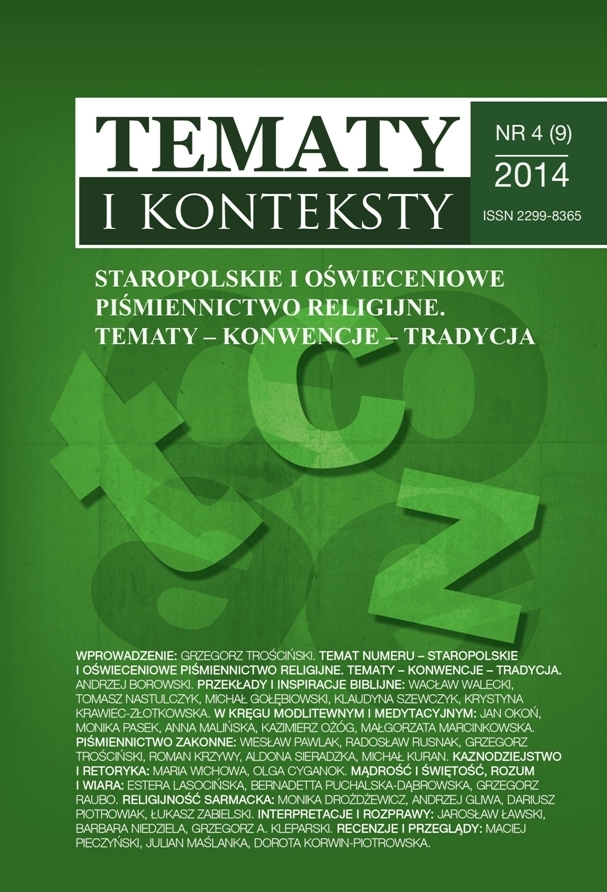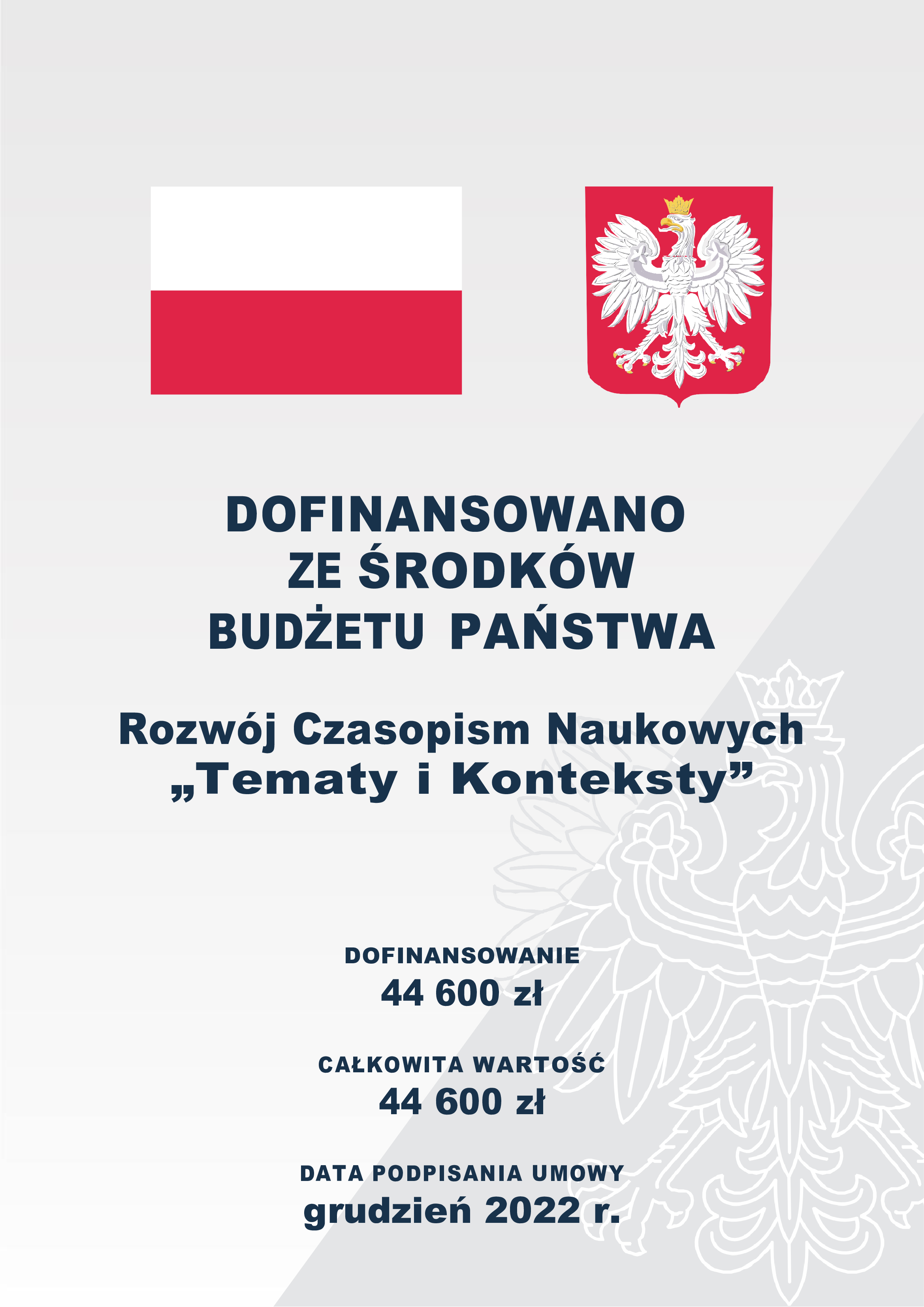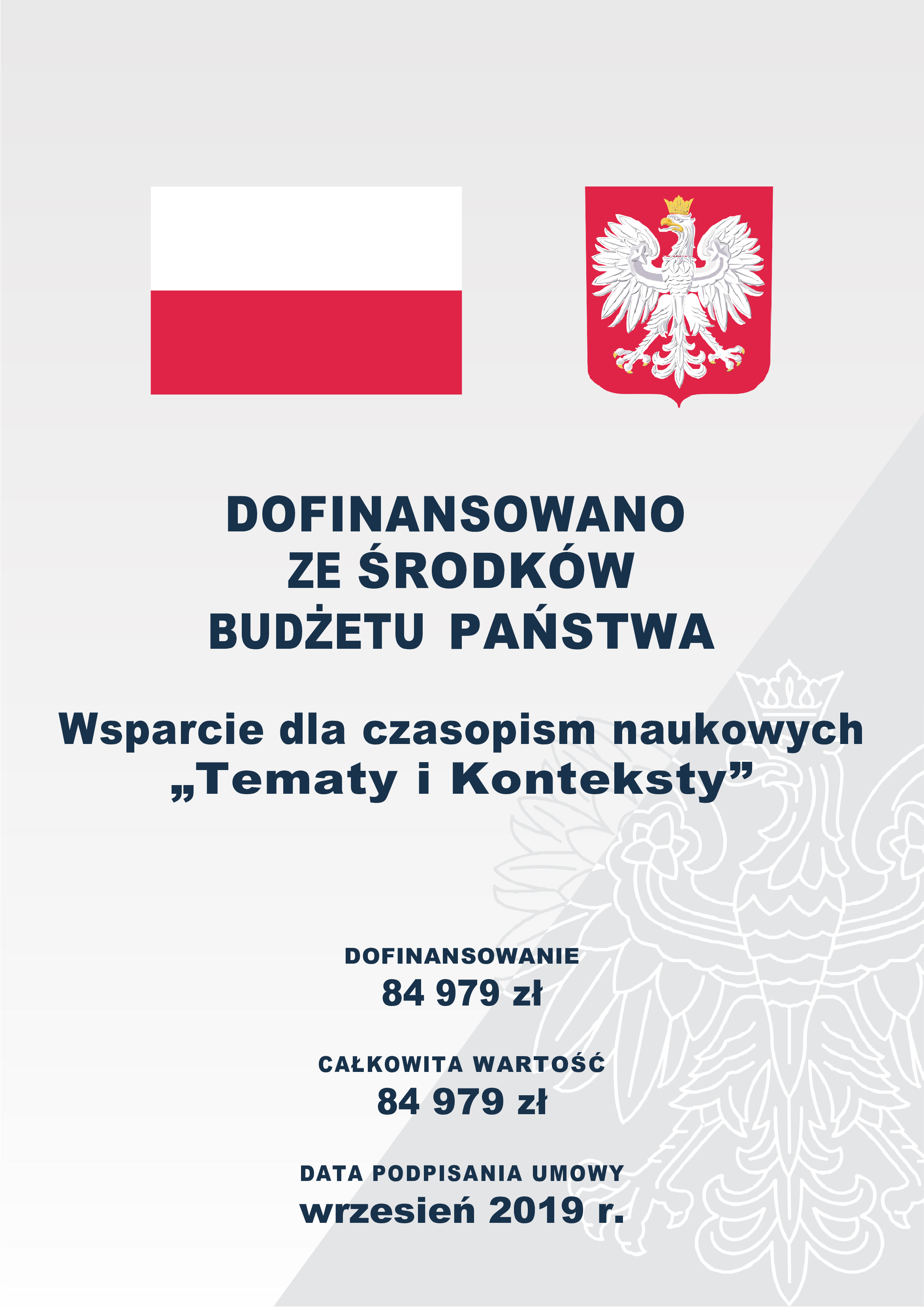Sarmatian Religiousness in the Writings of the Foreigners Visiting Poland during the 18th Century
Keywords:
sarmatism, religiousness, Enlightenment, travel journals, stereotypeAbstract
The main purpouse of this article is to elaborate how the foreigners who visited Poland during the 18th century described the religious life of the Polish nobility. The author analyses travel journals written by Johann Joseph Kausch, Johann Erich Biester, Jacques-Henri Bernardin de Saint-Pierre, William Coxe, Nathaniel William Wraxall, Joseph Marshall and James Harris. It is shown that the foreigners accused Polish nobles of bigotry and superficial religiousness. Moreover, they criticised the theatralisation of the Christian liturgy in Poland, although after the Council of Trident it was a common phenomenon in Europe. It is also proven that the foreigners demonstrated their indifferent attitude towards the idea of Poland as "antemurale christianitatis" and blamed the members of the Bar Confederation for cruelty and religious fanaticism. In conclusion, it is said that the foreigners created a false, simplified description of Sarmatian religiousness. The main reason of that was their general lack of understanding of Polish culture and mentality.Downloads
Download data is not yet available.
Downloads
Published
2014-12-20
How to Cite
Piotrowiak, D. (2014). Sarmatian Religiousness in the Writings of the Foreigners Visiting Poland during the 18th Century. Tematy i Konteksty, 9(4), 401–412. Retrieved from https://journals.ur.edu.pl/tematyikonteksty/article/view/2128
Issue
Section
Main subject
License
Copyright (c) 2014 Tematy i Konteksty

This work is licensed under a Creative Commons Attribution-NonCommercial-NoDerivatives 4.0 International License.




